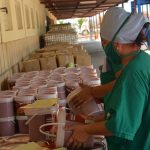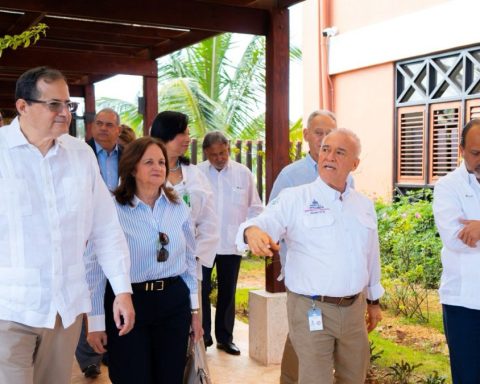Across Brazil, 2.114 million people living in 5,555 municipalities will take the National Unified Public Exam (CPNU) this Sunday (18). The number of cities corresponds to 99.7% of the total in Brazil (5,570 municipalities).
São Paulo is the state with the highest number of confirmed registrations for the call Enem of the Competitions. The state has registered a contingent of 225,037 candidates who will take the tests in 27 cities in São Paulo. The data is from the Ministry of Management and Innovation in Public Services (MGI).
The state of São Paulo is followed by Rio de Janeiro, with 220,078 applicants; the Federal District (195,688); Minas Gerais (169,952); and Bahia (160,824). Together, they account for approximately 45.9% of candidates. At the opposite end, among the states with the lowest number of applicants, are Acre (17,574), Roraima (17,730) and Tocantins (23,937).
Municipalities
According to the Ministry of Management and Innovation in Public Services (MGI), if Brasília is considered a city, the country’s capital leads the list of the 20 cities with the most applicants, with 195,688 candidates.
The list of cities with more than 50 thousand confirmed candidates is completed by Rio de Janeiro, with 125,521 registered; São Paulo (86,896); Salvador (BA) (67,102); Belo Horizonte (MG), 61,555; Belém (PA), 56,624; and Recife (PE), 52,445.
Santana do Araguaia, in Pará, was the municipality with the lowest number of applicants in the entire country: 544 candidates.
Test cities
In total, candidates will take the tests this Sunday (18) in 72,041 rooms in 3,647 application locations, such as schools, colleges and universities in 228 cities across all 27 states of the federation.
To choose the 228 cities where the competition tests will be held, the CPNU organizing committee at the Ministry of Management and Innovation in Public Services considered population density, the micro-regional radius of influence and ease of access as the items used to choose the cities.
The selected municipalities have more than 100,000 inhabitants, according to data from the 2022 Demographic Census, by the Brazilian Institute of Geography and Statistics (IBGE). The distribution by region is as follows: 40 cities in the North region; 61 in the Northeast; 30 in the Central-West region; 70 in the Southeast and 27 in the South region.
The ministry states that the option of holding the competition in 228 cities across the country aims to democratize the population’s access to public service vacancies.
“It is easier and cheaper for people to take the test near their homes. Furthermore, by paying just one registration fee, candidates can compete for positions in several public agencies. The idea is to increase the representation of the workforce, including socioeconomic, demographic and territorial criteria in the application of the competition, so that this is reflected in the federal public administration”, says a note from MGI.
Macroregions
In the North region, the tests will be held in 40 municipalities: two in Acre, nine in Amazonas, three in Amapá, 17 in Pará, four in Rondônia, two in Roraima and three in Tocantins. In the Northeast, candidates will be able to take the exam in 61 municipalities: two in Alagoas, 18 in Bahia, eight in Ceará, nine in Maranhão, four in Paraíba, seven in Pernambuco, seven in Piauí, four in Rio Grande do Norte and two in the state of Sergipe.
In the Central-West region, the 30 municipalities are distributed between Goiás, with 17 locations where the test is administered; Mato Grosso do Sul (4); another eight in Mato Grosso; and, in the Federal District, Brasília counts as a single city.
The Southeast will have four municipalities where tests will be administered in Espírito Santo; 26 in Minas Gerais; 11 in the state of Rio de Janeiro; and 27 in São Paulo.
Finally, the South region will have 27 cities where the contest will be held: nine in Paraná, ten in Rio Grande do Sul and eight in Santa Catarina.
Those interested in viewing the list of 228 cities where the tests will be held can access the link.

















